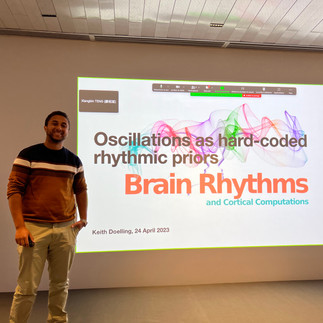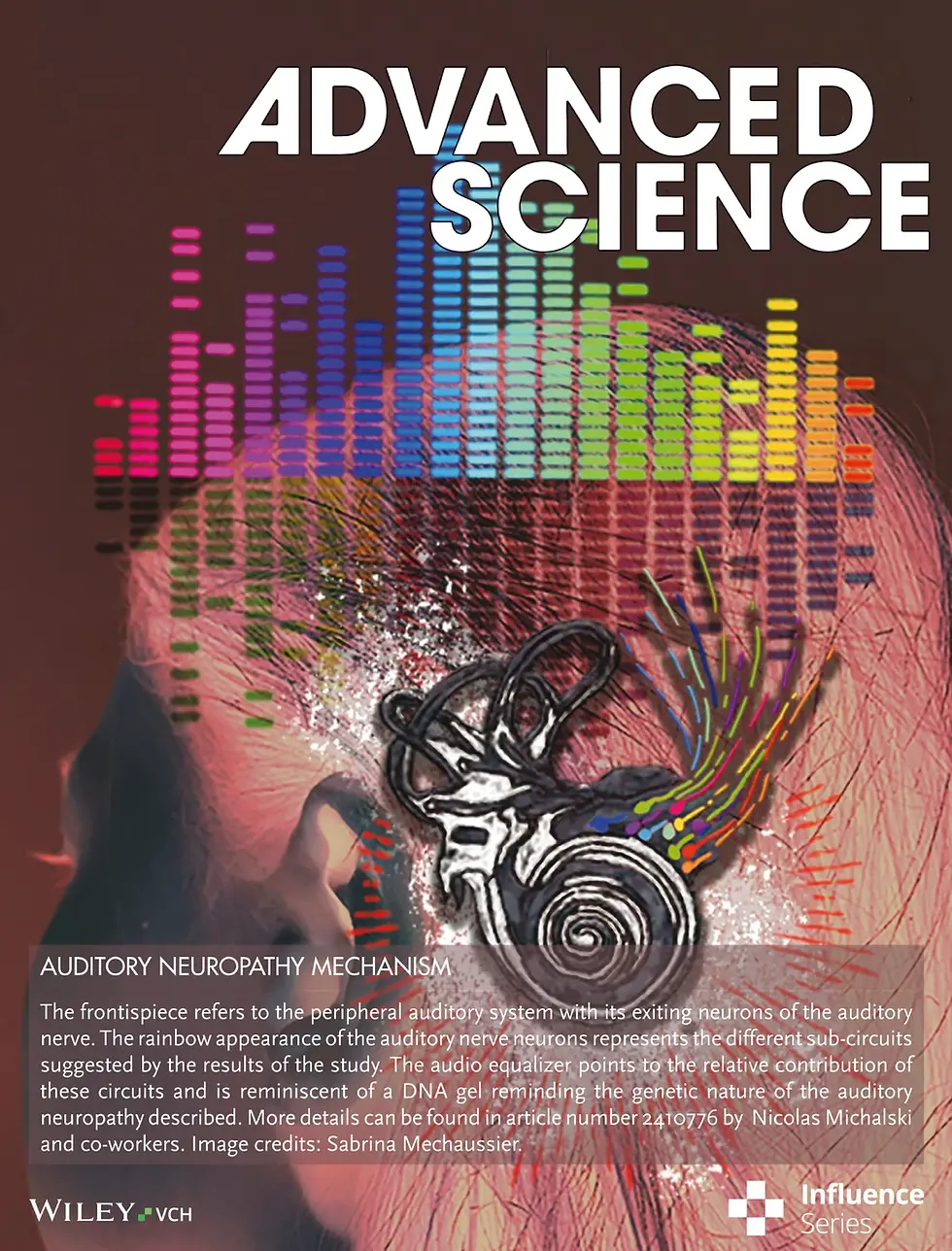Brain Rhythms and Cortical Computation workshop at the IdA
- oueb70
- May 22, 2023
- 2 min read
The Brain Rhythms and Cortical Computation workshop (BRhyCoCo) was hosted at The Institut de l’Audition on April 24th and 25th 2023. Seventy-seven researchers from the United States, United Kingdom, European Union and China traveled to Paris to discuss the roles that neural oscillations may play in cognitive function, particularly speech and auditory processing. The workshop, the first iteration since the Coronavirus Health Crisis, occurred over two days, including 17 presentations from esteemed researchers in the field, two debates, and one keynote presentation from Dr. Julio Hechevarria on the role of oscillations in Bat vocal communications.
The event, organized by Anne-lise Giraud, Sophie Bouton, and Keith Doelling, was also interspersed with ample opportunity for discussion amongst the audience, as well as poster sessions during lunch to showcase the ongoing work of 24 PhD and Masters’ Students and foster new collaborations between attendees.
BRhyCoCo has a 15-year history centered on the discussion of ideas that motivate research on neural oscillations in cognition. Its focus lies on taking stock of past research while setting goals and ideas that inspire future work. Presentations are given equal time for lecture and questions to allow for discussion to clearly develop. The topics covered include methods for coding information in oscillations, the role of oscillations in attention, and in particular, how oscillatory dynamics fit into larger frameworks of cognition, including Bayesian perception, Predictive coding and Computational Neurolinguistics. In addition, a session was dedicated to the role of oscillatory function in child development and neural disorders such as autism and dyslexia. The workshop made clear how oscillations can be used in a wide array of cognitive functions, particularly serving communication while also inspiring attendees to develop novel theoretical classifications for each oscillatory function and its role in cognition.










